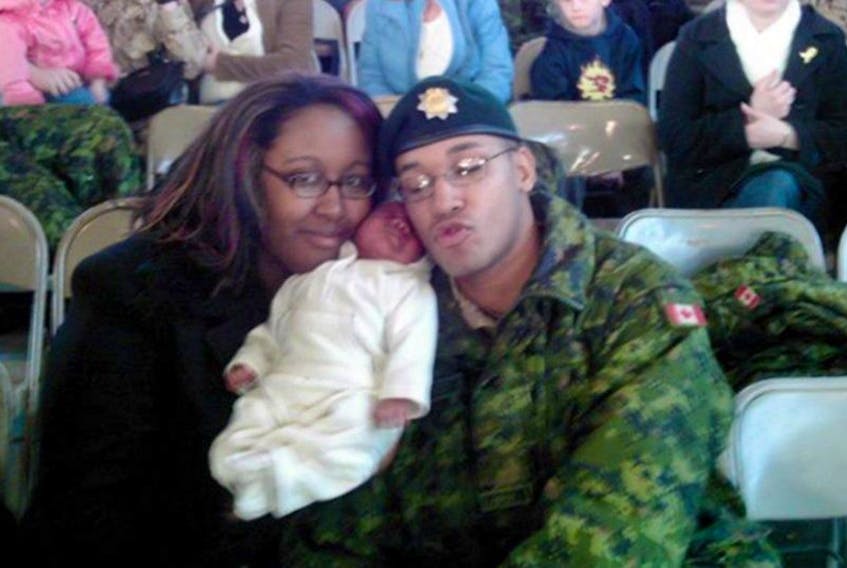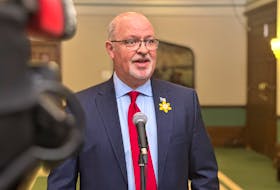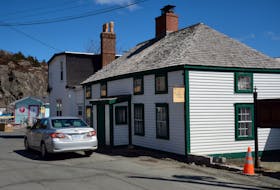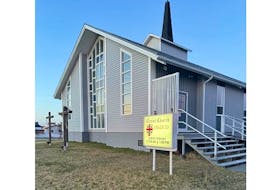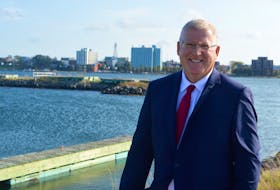GUYSBOROUGH, N.S. — A Fredericton family doctor who works with many veterans took a harsh view of how Canada treats soldiers who suffer from post-traumatic stress disorder.
“Our (PTSD suffering) soldiers are chastised, treated like lepers,” Dr. Paul Smith told the Desmond Fatality Inquiry on Monday.
“It’s all about pills and psychotherapy. It’s pathetic. There’s nothing about developing relationships, which (are) what makes the world happen.”
Lionel Desmond appeared at Smith’s office in July 2015.
He’d just been discharged from the military, his marriage was on the rocks and money was short.
Diagnosed in 2011 with PTSD and suspected brain damage from concussions during a tour on the frontlines of Afghanistan in 2007, Desmond had already been prescribed antidepressants and drugs to help him sleep.
“It’s all about pills and psychotherapy. It’s pathetic."
He had largely stopped taking these medications.
He knew through friends that Smith was running a study into the effects of marijuana on PTSD.
“Obviously I have asked myself that question many times since then,” answered Smith when asked whether there was something going on in Desmond’s mind that the veteran wasn’t sharing.
“He talked about his emotions. He wore his heart on his sleeve.”
Medical marijuana
Smith provided Desmond with a prescription for medical marijuana.
Ultimately, Desmond would stop regularly smoking marijuana because he found it led to paranoia that his wife, Shanna, was cheating on him.
But for the next seven months he continued in a support group hosted by Smith. During the summer months it is held at a camp and includes fishing, archery, yoga and other outdoor activities.
The idea, he explained, is to work on rebuilding the relationships that are lost when soldiers is discharged from the military.
“The armed forces may be the only thing they identified with,” said Smith.
“They’re now lost, they can’t work, often their families are falling apart.”
Add to that severe mental health issues related to their service and growing frustration with Veterans Affairs.
“A typical conversation with (Veterans Affairs) is listening to music on the phone for half an hour, then they don’t know anything about you,” said Smith.
“There’s no warmness. It could be a lack of resources, it could be an attitude. (The veterans) take it all very personally of course when it’s probably just a system that’s lacking resources.”
Last visit
On Feb. 3, 2016, Desmond came to Smith’s office for the last time.
He was off marijuana and headed to an inpatient treatment program. He also had a form from the New Brunswick firearms office. The previous November he’d sent text messages to Shanna that he was going to kill himself. The RCMP had been called and the incident caused an automatic review of his possession and acquisition license for firearms.
The form contained details about the Nov. 27 incident for Smith to review.
“He had things to live for. He had a group of friends, he loved his daughter.”
But it didn’t have details about two other incidents where police were called on Desmond in Nova Scotia the same month because the firearms office wasn’t aware of them at the time.
Smith filled out the form. Eleven months later, Desmond would use his licence to kill Shanna, his daughter Aaliyah and mother Brenda before shooting himself.
“He had things to live for. He had a group of friends, he loved his daughter,” said Smith.
"I asked why he wanted his firearm’s licence — he was a hunter, lover of mother nature and so forth. In retrospect everyone said he’s the last one they would have thought would go on to this kind of an event.”
Departments and agencies that offer support and treatment for PTSD
National Center for Post Traumatic Stress Disorder
National Child Traumatic Stress Network

